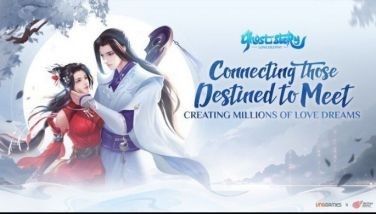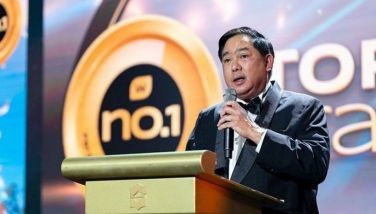Who is my candidate?

I have been asked if I am so against Noynoy as the next president of the Philippines, then tell us who is your candidate? Some columns ago, I wrote that I am for constitutional reform. I am for the candidate who will categorically commit his government to constitutional reform.
In a recent conference sponsored by the Konrad Adenauer Foundation, federalist advocates who were also for Noynoy said he is the candidate who would make the change. I don’t know where they are coming from but if Noynoy is to pass on the torch of his mother, democracy icon President Cory, then the promise is hard to believe.
Cory was against any change in a constitution that was forged during her government, no matter if it was clear that it stood in the way of the progress of the country. Indeed the 1987 Constitution is also referred to as the Cory Constitution. Most advocates have focused on three areas for reform — a shift to parliamentary government, a calibrated evolution of the federalist principle and more liberal economic provisions to make the Philippines more attractive to foreign investments. Investments should be regulated through law, not by blanket constitutional provisions.
* * *
Of the three areas, federalism has the widest support because it is anchored on an idea that gives wider political and economic powers to local authorities. It also has the support of foreign foundations chiefly, the Konrad Adenauer Foundation.
I am not against foreign foundations encouraging political debates but it can also be a double edged sword. Like democracy, federalism can be used to subvert a country’s sovereignty. It may be unintentional, but an advocacy seen to be propelled by foreign groups often discourage its own citizens from solving their own problems. They lose their capacity to think creatively and act for themselves. I have often thought that this is also why Filipinos do not feel responsible for their country. This is especially true of the Philippines where benevolent assimilation is at the heart of its colonialist development.
So if we accept that federalism, as a political idea, is based on universal principles of freedom and democracy, then it is not a western concept being introduced to a backward country.
There are enough examples of how a generally good idea is used as a backdoor for bad intentions. Raul Manglapus, who is well regarded by the foundation wrote this in his book “Will of the People: Original Democracy in Non-Western Societies.” We are dealing with a nuance here. It can easily escape us that when a good idea is interpreted as coming from the West it does not encourage political creativity in the East.
We should draw our inspiration from our own history. Manglapus’s statement that democracy is not a western concept equally applies to federalism.
In his book he says democracy is “a value that has been treasured and practiced in the East — in Asia, the Middle East and elsewhere — as far back as at least 2500 B.C.”
He argues that democracy is the natural state of most of mankind and cites how the earliest tribes and villages governed themselves through discussion, consensus and customary law. A truly democratic society would not tolerate a structure that concentrates power to Imperial Manila.
* * *
It is fortuitous that as we embark on our search for the basis of political changes that come from our own roots, we have a project called “The Voyage of the Balangay 2009-2013”. The balangay boat was found in Butuan, Agusan del Sur in the 1970s. The same Filipino group that climbed Mt. Everest led by former Undersecretary of Transportation and Communication Art Valdez and his team are behind the project. The group said in a press statement that just as they conquered the tallest mountains, they are poised to “conquer the seas of the world in a craft that our ancestors used thousands of years ago.”
The group tells why they have taken up the project. “Thousands of years ago, the ancestors of the Filipino people, the Austronesians, traveled from the Asian mainland by land bridges across the continental shelf to the Southeast Asian archipelago. They then sailed onward to as far East as Polynesia and as far West as Madagascar, aboard the ancient vessel: the balangay.”
It may seem unrelated but boat building is akin to nation building. The replica of the boat was crafted by master boat builders from the island of Sibutu and Sitangkay in Tawi-Tawi, whose skills had been handed down through generations from the 4th, 13th and 14th century A.D.
“This will not only showcase the capability of the Filipino boat builders but would also be our way of instilling and propagating the idea among the present Filipinos, particularly the youth, that the Filipinos have been world-class boat builders even before the coming of the Western colonizers.”
Therefore it is appropriate that the smallest unit of government is called a barangay. It used to be known as barrio in Spanish and American colonial days. There are 41,995 barangays throughout the Philippines. It is to these units of government that we should address constitutional reforms.
When the Spaniards came in the 16th century they found Filipinos living in well-organized independent villages called barangays. The word comes from balangay, a Malay word meaning “sailboat”. Here is a good example of indigenous inspiration. In pre-colonial Philippines, each original coastal “barangay” was formed by settlers arriving by boat from other places in Southeast Asia.
* * *
It is against this background of Filipino achievement that we should fashion our government so we can be respected in the world. When Art Valdez and his team climbed the Mt. Everest they tackled the hardest part of the Himalaya range yet they did not get the same publicity Western climbers are given.
All that is bound to change. In a recent conference in Kuala Lumpur, Veronica Pedrosa was asked what Al-Jazeera was all about. As far as Western television stations like CNN and BBC were concerned it was an encroachment on their territory. Not so. Al-Jazeera International, she said, would reverse the flow of information, from East to West. The flow of information has been monopolized by Western media like BBC and CNN. But things are changing in the 21st Century. “Always and everywhere the compelling urge is, “we have to be better than them,” she said.
- Latest
- Trending






















